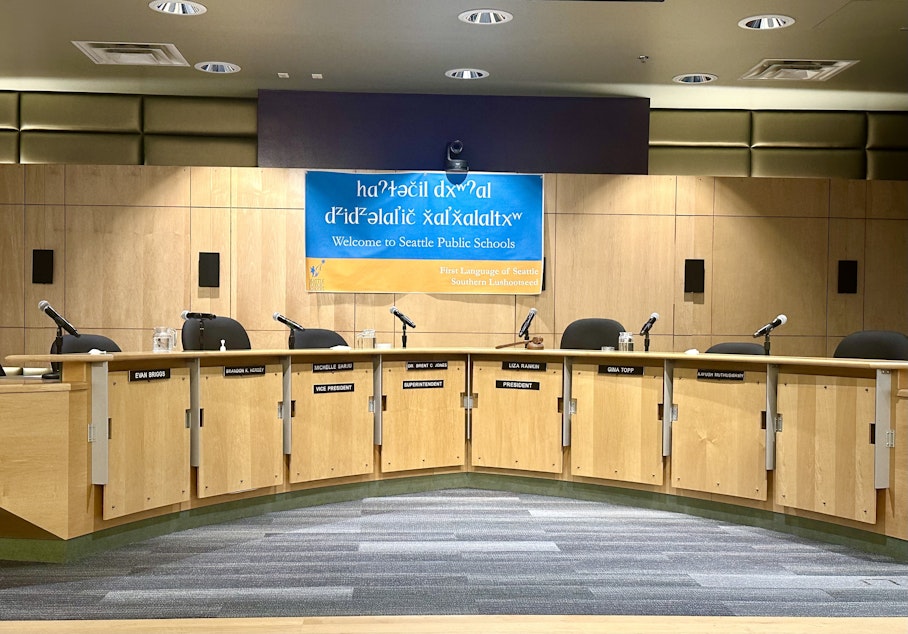When will Seattle get two new school board members?

The Seattle School Board has laid out the next steps for filling two empty board seats and will consider changes to its residency policy next month.
The plan comes a week after board members Vivian Song and Lisa Rivera abruptly resigned because they both moved outside of the districts they’d been elected to serve.
At a Wednesday board meeting, President Liza Rankin said they aim to open up applications early next week and appoint the new members by the beginning of April, well before the board's 90-day deadline on May 2.
“I am hoping that we can err on the side of finishing soon,” Rankin said, “because we have so many different things – we want to onboard new directors and get them, at least a little bit, the lay of the land before they jump into some pretty big votes.”
This turnover on the school board comes as the district faces a nearly $105 million budget deficit — meaning that drastic cuts and a plan to close schools in the coming years will be among the first votes the two new board members will cast.
Rankin also said the appointment process will include public interviews. All application materials — including letters of interest, resumes, answers to a series of questions from current board members, and short videos — will be publicly available on a district website.
Despite some community members’ calls for special elections, Seattle Public Schools’ general counsel Greg Narver said Wednesday that state law calls for Song and Rivera’s board-selected replacements to serve through the next school board election in 2025.
Whoever is elected to Song’s District 4 seat will serve the typical four-year term, Narver said. But because Rivera had just been reelected to a second four-year term in November, the person chosen for her District 2 seat will serve for two years — allowing the district and county to get back on the regular election cycle.
In the meantime, Rankin said Wednesday that it’s a good time to update the board’s residency policy so that it clearly spells out when and how a board member must notify district officials if they move.
Although school board members are elected citywide, state law requires board members to reside in the part of town they represent.
Rankin called the school board’s current policy “boilerplate” that simply restates that law. It doesn’t include any direction on who at the district or in the school board office a member should contact if, for whatever reason, they move residences.
The new policy sticks to state law, but would provide more guidance to board members, Narver said.
“We have to ensure that the offices that are responsible for that system can do their work,” Narver said, “so that voters have the opportunity that state law wants to provide them: To elect directors who reside in the district they are elected to represent.”
The board is slated to vote on the new policy at their next meeting on March 6.




